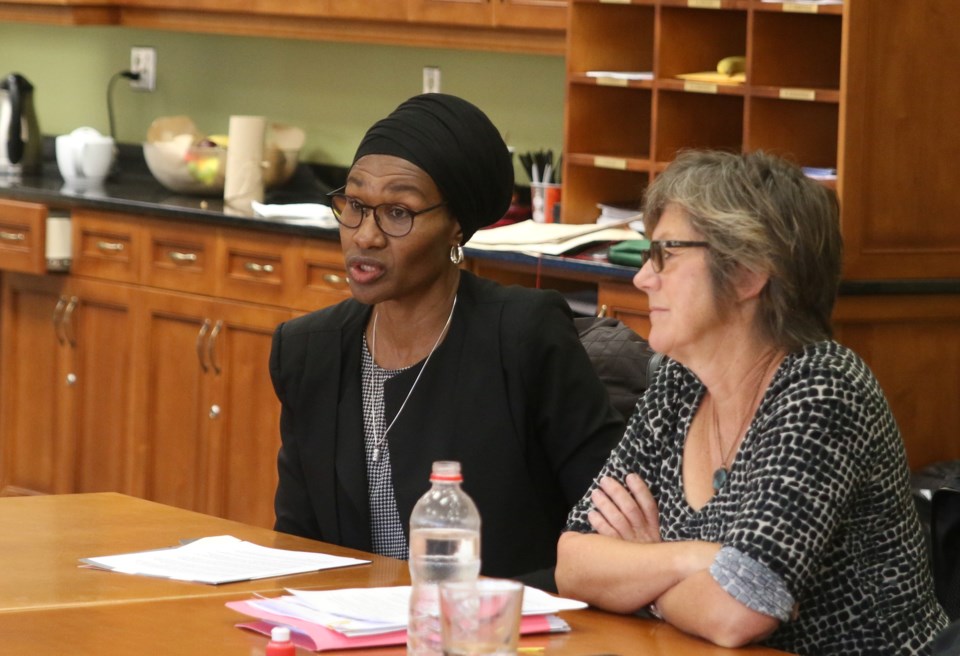THUNDER BAY - Members of the Anti-Racism and Respect Advisory Committee want city leaders to take a more active role in denouncing racism in the city of Thunder Bay and standing up for marginalized people.
“When you are in a position of power and privilege like city council is, some responsibility is expected,” said Amina Abu-Bakare, chair of the Anit-Racism and Respect Advisory Committee.
“When issues are happening in the city, people are looking upwards for leadership and that is where everybody looks to, what our leaders are doing, and it trickles down to what the ordinary person on the street is doing.”
During a special roundtable discussion held at Thunder Bay City Hall Monday night, the Anti-Racism and Respect Advisory Committee spoke with members of city council about some of the issues facing the city.
Community representative, Shawn Carney, said the issue of racism in Thunder Bay is bigger than one committee.
“There needs to be a leadership response to when things happen, to denounce them,” she said. “It needs to be given a much bigger priority than just a committee. Maybe a full-time advocate. There is no easy solution and there are no templates.”
The committee acknowledged that Thunder Bay has been in the spotlight in recent months, even earning infamous title as the most racist city in Canada. Carney said certain indicators should be used to see how racism has impacted the city, including property values, attracting new businesses, and tourism.
Members of council agreed that racism is a problem in Thunder Bay, but some wanted to know how much racism is increasing in the city.
“Racism exists in the city, but I think what needs to be looked at is if racism is increasing or not,” Counc. Paul Pugh said. “If it is, we can look at what steps to take to deal with racism.”
Abu-Bakare said one of the biggest changes in Thunder Bay over the last 20 years is an increase in minority populations.
“It is bound to happen,” she said. “There has been a big change in Thunder Bay and hence, the rise of racism in Thunder Bay.”
Counc. Aldo Roberto said there are many pieces of the puzzle, with the city, the federal government, the Indigenous community all having a role to play in solving the issue.
Others on council said there is too much finger pointing and looking to place blame, while others wanted to see the Anti-Racism and Respect Advisory Committee expand its reach and include anyone facing discrimination or marginalization, including based on gender.
“We need to identify the solutions,” Counc. Joe Virdiramo said. “It isn’t just money. You need to change attitudes and people’s thinking. Now we need the solutions to deal with the problem.”
Abu-Bakare agrees that it comes down to changing people’s minds and attitudes to create a sense of understanding.
“The majority is being there to support the person, to tell them I hear you, I see you, I understand you,” she said. “We really need to take baby steps. Rome was not built in a day. It was built one brick at a time.”
The Anti-Racism and Respect Advisory Committee will be presenting potential action plans to city council and the Regional Multicultural Youth Council will be presenting its own list of ideas at a future meeting.
Abu-Bakare said she believes the people who are racist in the city represent the minority, and by setting the right example, those people will begin to change.
“If they can see us changing, the community one person at a time, I’m sure they are going to come on board,” she said. “I’m sure some will never change, but are we going to wait for them, no.”
